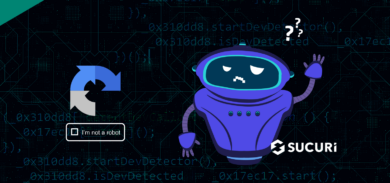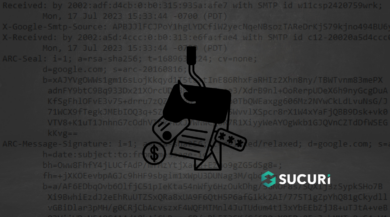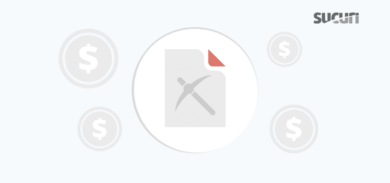A hack or cyber attack is the act of maliciously entering, taking control over, or manipulating by force a web application, server, or file that belongs to someone else.
Cyber attacks will:
- modify files,
- retrieve information,
- insert commands or scripts,
- change the way your website and Google Search Results look to visitors.
What Do Hackers Do?
Here is a brief descriptions on the most common cyber attacks we see performed by hackers. These serve as constant threats to the integrity of any website.
Malware Injection
Website malware refers to any malicious code injected into a website. Malware can accomplish many unwanted actions on a website, including malvertising, malicious downloads, and ransomware.
Web-based malware is not limited to a single action. There’s a variety of outcomes that can significantly impact your personal information, website, and business.
Website malware attacks are not uncommon for the most part. You’ve probably heard some of the most popular ones, such as:
- Trojans,
- Adware,
- Worms,
- Viruses,
- Spyware..
Our Knowledge Base offers extensive details and information about specific malware signatures.
SEO Spam and Comment Spam
SEO spam-infected sites typically redirect visitors to spam pages. Other times, victims see injected content related to pharmaceutical ad placement, fashion, or entertainment industries appear.
The motivation behind this method for cyber attackers is simple—its ease. Gaining access into a website and stealing its popular SEO ranking is a far better choice than creating new rankings from scratch. However, for the victim, SEO spam immediately damages SEO rankings and brand reputation, leading to loss in traffic.
SEO and comment spam can also be tricky to detect. Hackers inject spammy links on a website visible only to Search Engines and visitors— not the website owner. This leads to malware stealing your domain authority and tarnishing your reputation to boost their own.
In our blog post on Malware Serving SEO Spam from External Sites, we see the correlation between what our internal team observes daily, where 56.4% of all website infection cases involved SEO Spam Campaigns.
Phishing
Phishing (sometimes called spoofing) is a fraudulent attempt at obtaining sensitive user data, such as login information or other personal identification information (PII), by pretending to be a different website.
Something as simple as mistyping a URL can land you to a phishing website. Some cyber attackers will place:
- Popups,
- Interactive links,
- Forms,
- Fakelogin boxes
These phishing schemes achieve the same goal: stealing visitor’s credentials and sensitive data for their own malicious use.
Ransomware
Ransomware is a type of malware designed to hijack information. It is often isolated to local environments in return for money or some other collateral.
Once cyber attackers gain access to your website, they don’t release it until their request has been granted. This type of attack extends to possible legal and financial issues should the attacker access sensitive information, like credit cards, usernames or social security numbers.
Defacement
A defaced website has its homepage or other pages completely altered, yet a clean website backup can save the day from defacement.
Usually executed systematically, hackers alter the original appearance of a website. Website defacement, a form of vandalism, mostly occurs via SQL injections.
Hackers like to deface popular sites mainly for political reasons (hacktivism) or even just for fun.
Conclusion
The internet has many ever-changing threats that can potentially damage lives, as well as cost you time, money, and valuable resources. Fortunately, there are ways to protect your assets and stay ahead of the game in order to minimize the impact and reduce the chances of being a victim yourself.
You can learn about how to stay ahead of website threats by reading website security blog posts and guides to implement best practices. If you are looking for help in protecting your website from attacks and hacks, we offer a website security platform to give you peace of mind.










